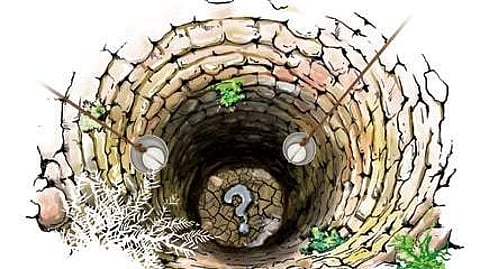

BENGALURU: Due to deficit rainfall and a prolonged dry spell leading to shortage of water in forests, Forest, Environment and Ecology Minister Eshwar Khandre has issued directions to fill up waterholes and send GPS videos and pictures of the exercise.
Water scarcity will lead to man-animal conflict, Khandre said here on Thursday. He also issued directions to drill tubewells and install solar pumpsets wherever necessary, inside forests. He said staffers should give priority to filling up waterholes, and directed officials to take all required measures to reduce cases of conflict.
However, experts, conservationists and forest officials have raised eyebrows over the directions. They said this type of meddling with nature will not help.
“Already, too many civil works are going on inside forests, which is leading to conflict. Politicians and activists should understand that nature needs to take its course. Due to interference like ensuring 24x7 water supply in waterholes, migration patterns and natural cycles of births and deaths of animals, especially elephants, is getting affected. This is the reason why their population is on the rise, beyond the carrying capacity. Nature has its own course of drought and and heavy rainfall, there should be limited interference, at least in forest patches,” said a conservationist who works closely with the government.
Adding to this, a senior forest official said, “Instead of spending funds on such work, the government should allow us to continue with rail barricading and clearing encroachments, so that conflict is reduced. The government should also help us create proper buffer zones to reduce conflict.”